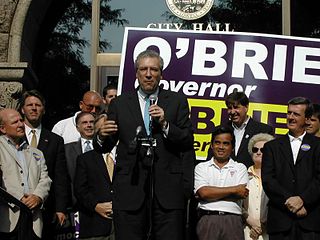A Quote by Heidi Hayes Jacobs
Without question, students need to practice, review, and drill skills, but they should do so only in the spirit of working toward more complex mastery of those skills. Redundant drill of skills is inherently boring and insulting to the learner, and it is one of the most effective methods for turning students off to learning.
Related Quotes
I am relieved that, in my own teaching, I don't have to moderate between high stake teaching and education for the virtues. If I did, I would give students the tools to take the tests but not spend an inordinate amount of time on test prep nor on 'teaching to the test.' If the students, or their parents, want drill in testing, they'd have to go elsewhere. As a professional, my most important obligation is to teach the topic, skills, and methods in ways that I feel are intellectually legitimate.
It is the acquisition of skills in particular, irrespective of their utility, that is potent in making life meaningful. Since man has no inborn skills, the survival of the species has depended on the ability to acquire and perfect skills. Hence the mastery of skills is a uniquely human activity and yields deep satisfaction.
Why should we tie everyone's future to athletic success? I think organic farm has saved our school. It saved it because it changed the narrative of the institution. We're the first urban work college in the country. And so our students learn what it means to be effective and to have job skills and work skills.
Business requires an unbelievable level of resilience inside you, the chokehold on the growth of your business is always the leader, it's always your psychology and your skills - 80% psychology, 20% skills. If you don't have the marketing skills, if you don't have the financial-intelligence skills, if you don't have the recruiting skills, it's really hard for you to lead somebody else if you don't have fundamentally those skills. And so my life is about teaching those skills and helping people change the psychology so that they live out of what's possible, instead of out of their fear.
The use of online assessment tools is giving teachers a more fine-grained understanding of individual students' skills, and assisting them to determine the necessary next steps to enable them to achieve their own learning goals. We are seeing more effective differentiation in classrooms as a result.
Most children, even very bright ones, need constant review and practice to truly own a concept in grammar, math or science. In schools today, on paper it may appear that kids are learning skills, but in reality they are only renting them, soon to forget what they've learned over the weekend or summer vacation.



































